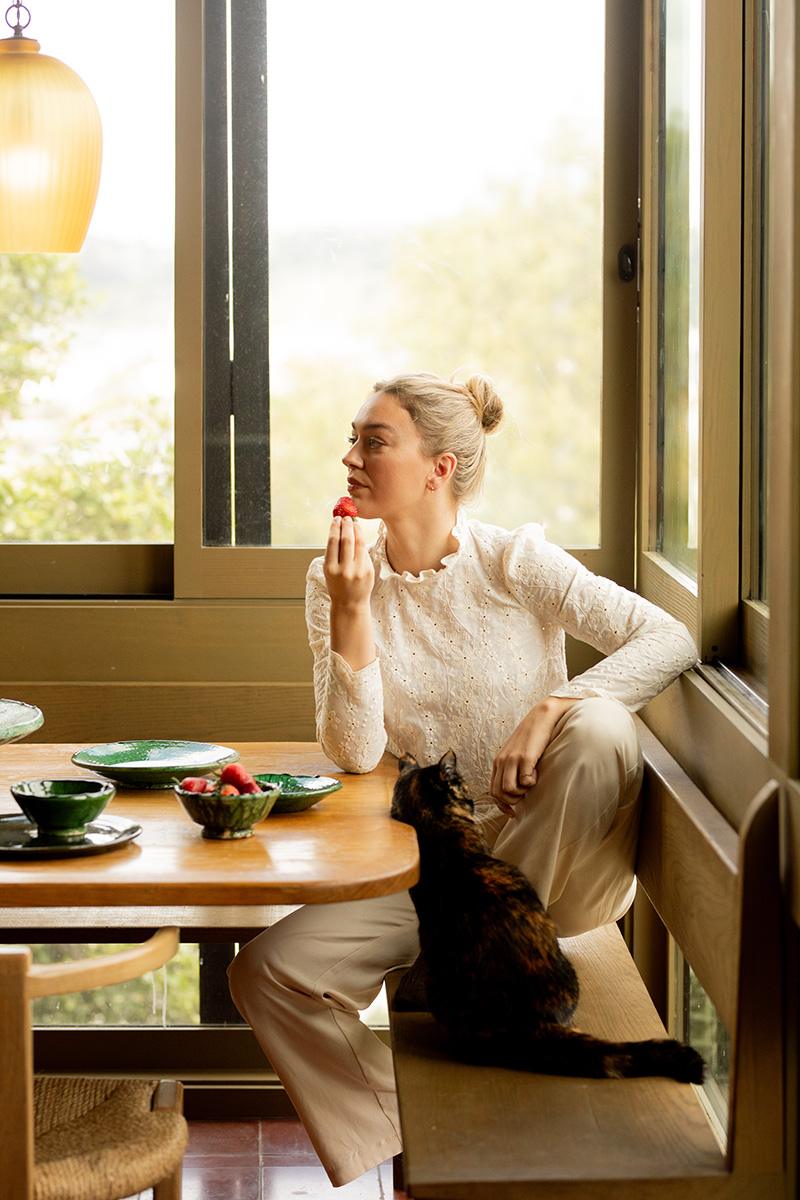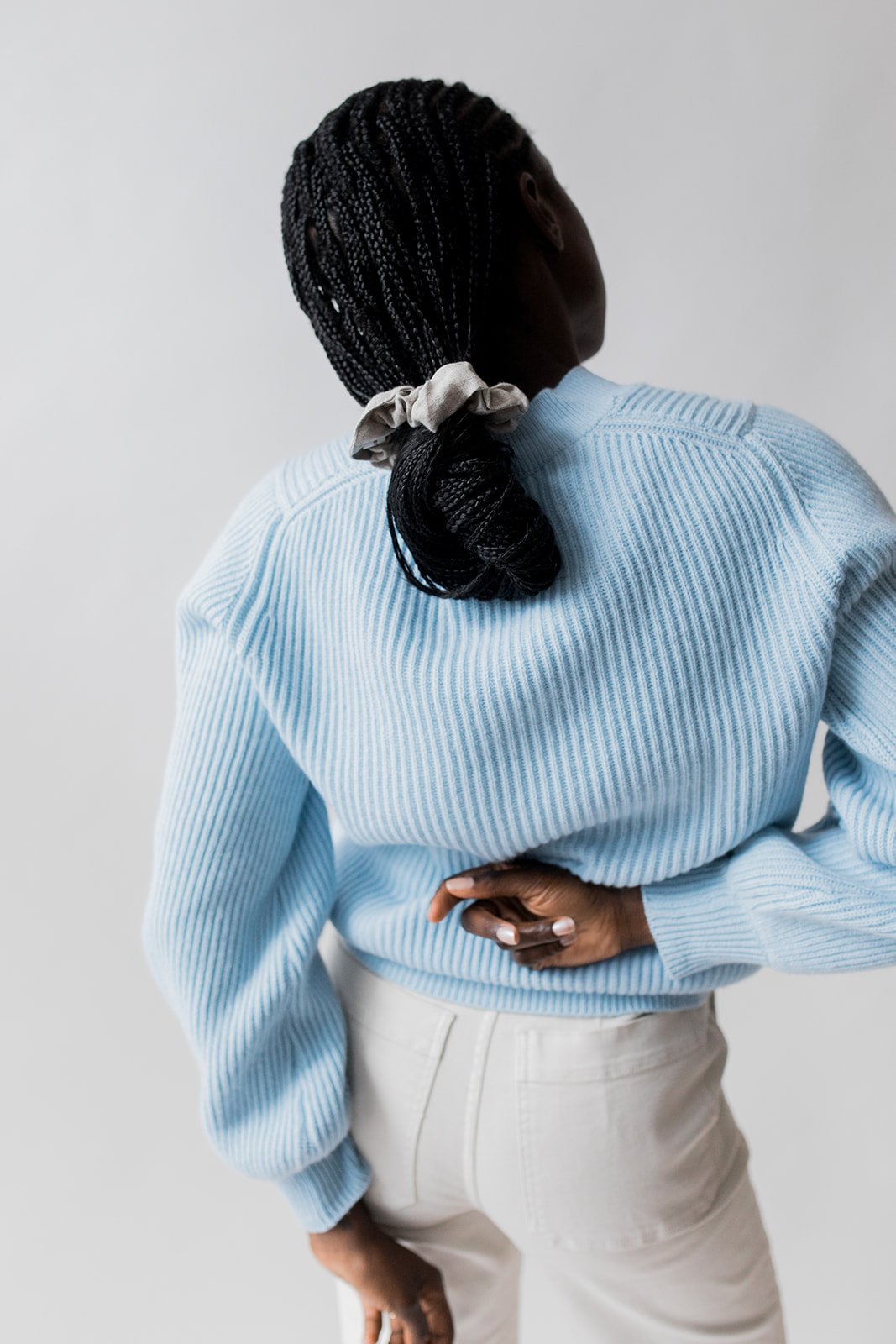
No, You’re Not “Too Sensitive”
“You’re too sensitive” is a statement I’ve heard all my life. Depending on the context, it’s either meant as an insult or offered as well-meaning feedback. Regardless of the intention, I’m always left with the same feelings: Toughen up. Be stronger. Bury your emotions. Be different than who you are.
When I was a teenager, my parents and friends noted how emotional I was. I think they feared I was too delicate and might break. I cried as often as I laughed and my mood swings were vast and frequent. I was also easily influenced by the opinions of others.
“Why do you care so much about what other people think?” I remember my dad asking me one day after school. I was upset about a petty rumor started by my ex-boyfriend and I’d been moping around the house all evening. I looked up at my father, a six-foot man with the thickest skin I know, and shrugged. “I just wanted to be liked, I guess.” He met me with a confused gaze and a look of pity. I didn’t know how to explain that it wasn’t popularity I was after, it was belonging. I wanted to feel accepted for who I was.
For years, I’ve been ashamed about my bottomless well of emotions and my paper-thin skin. From as early as I can remember, my world has been shaped by sensitivity. I process experiences and relationships through my heart first, then my brain, and then my body. Sometimes it can be overwhelming. I often wonder how it’s possible to experience joy and sorrow in the same hour and sometimes simultaneously.
“My world has been shaped by sensitivity. I process experiences and relationships through my heart first, then my brain, and then my body.”
I’m especially embarrassed about my sensitivity to the opinions of others. As soon as I walk into a room full of people, my senses are heightened. Even when I’m lost in thoughts, I notice the way the room feels. I note body language and absorb moods as if they were my own. “Read the room,” they say. Trust me; I read it cover to cover.
Of course, sometimes, my feelings get the best of me and lead to an unhealthy headspace. There are days I don’t handle conflict and criticism well; I’ll take someone’s tone personally and create false narratives about my worth. But I have to remind myself that most people aren’t out to hurt me, especially not my loved ones. I owe it to others to interrogate my feelings and reflect on any negative emotions. When in doubt, I put my brave pants on and communicate. Almost always, people are happy to reframe their initial words so that I more clearly understand their meaning.
“I cry and laugh and scream and worry all before lunchtime.”
Most days, though, I operate in a healthy headspace, which includes responding to the world as a person deemed “too sensitive.” I cry and laugh and scream and worry all before lunchtime. Without permission, my tear ducts well over—whether I’m talking to my mom, my boss, or the clerk at Trader Joe’s. I can’t escape my sensitive nature; this is how I’m made. I need to cry and express myself to process life and experiences. And I’m tired of all the tropes telling me I’m “too much” and “a lot to handle.”
Perhaps I don’t need to get ahold of myself, grow thicker skin, or channel my feelings into creative projects. My feelings aren’t something to be fixed or released. They are as much a part of me as my limbs. Maybe, just maybe, my sensitive spirit is a sign of strength and power. I am an empathic and emotionally aware person. As author Glennon Doyle reminds me, my superpower is my sensitivity.
“I am an empathic and emotionally aware person. My superpower is my sensitivity.”
I’m not alone in my wondering. A quick Google search shows the magnitude of sensitive people operating in the world, asking the internet questions like, “Am I too sensitive?”; “Why am I so emotional?”; and, the most heartbreaking, “How do I stop being a sensitive person?”
Sensitivity is an innate characteristic, not a learned or malleable trait. We can’t change our sensitive nature, nor should we have to or want to. Learning to love ourselves as we are may take some rewriting of old scripts, but it’s so worth it. We can choose to embrace and even celebrate the sensitive spirits living inside us. And then we can pass the freedom on to others who’ve for too long believed they are “too sensitive.”
Because sensitive people are just another breed of people, and the more often I remind myself of this, the less I believe there was ever such a thing as being “too sensitive.”
Self-Care Tips For Sensitive People
1. Inhale your feelings, exhale truths. Sometimes, we feel shame when our feelings are hurt, or someone deems us “too sensitive.” And it can be easier to avoid this hurt by pretending it’s not there.
But feeling our hurt can be helpful, and embracing the harder feelings doesn’t mean we must stay there. Artist and writer Morgan Harper Nichols explains this beautifully on her podcast (a mini-meditation series):
May we inhale how we feel, then exhale objective truths (“I am hurt, but I will be okay”) to move forward.
2. Communicate with loved ones. Sometimes, our loved ones need gentle reminders about how we experience the world. Even after 10 years with my partner, I often have to remind myself that he doesn’t see or experience life like I do. Communication is key, then, to keep our loved ones in the loop with the many emotions we may be experiencing.
3. Respect their boundaries. But, as often as I need to process my emotions and talk through feelings, my loved ones can’t be my sounding board—we can communicate without offloading. It’s essential that we respect the boundaries of others, just as we’d ask others to respect our boundaries, too. This isn’t to say our loved ones don’t want to listen (many times they do!), but may we get in the habit of asking before sharing our feelings or processing emotions aloud.
It takes a lot of emotional bandwidth to listen to and be a safe space for someone else, and it means a lot to others when you respect these boundaries and ask before divulging your feelings.
4. Remember that not everyone is a sensitive person. Just as the world needs us, it needs people who process their emotions through their brains and bodies. It’s not fun being told you’re “too sensitive,” neither is it fun to hear “you’re insensitive.” Everyone processes experiences and relationships differently. May we be kind to others and use words to bridge communication gaps.
5. While nurturing self-trust, seek out objective truths. Sometimes, our emotions don’t tell us the full story—and it’s okay to ask questions about our feelings and seek out objective truths. Our feelings are valid, but they can sometimes limit our understanding as well—both things can be true simultaneously.
Journaling and therapy (if that’s an option for you) are helpful for gently challenging our emotions and considering alternative angles or perspectives. Ultimately, widening our lens will only help us to move through the world as more balanced individuals.
And if you love a sensitive person:
Remember, words hold power. As the old saying goes, sticks and stones break bones. But—for sensitive people—words can hurt, too. My advice is to be gentle, direct, and transparent in your communication. Please don’t dismiss our feelings, even when they seem incomprehensible. The truth is that most sensitive people enjoy experiencing the world through an emotional lens; it makes us feel alive and gives experiences a deeper sense of meaning. We just want to feel accepted and normal in the process.
It is estimated that 15 to 20 percent of the population may have traits of a Highly Sensitive Person (HSP), a subset of the personality trait sensory-processing sensitivity (learn more here). While not all sensitive people identify as HSPs, many do and it’s worth learning more about so we can help break the stigma. The “Highly Sensitive Person” by Elaine N. Aron is a great place to start.
Kayti Christian is a Senior Content Strategist at The Good Trade. With an MFA in Nonfiction Creative Writing, her work has appeared in TODAY, Shondaland, and The New York Times. Since 2017, Kayti has been uncovering and reviewing the best sustainable home brands and wellness products. Her personal journey through four years of fertility treatments has inspired her to write extensively about women’s healthcare and reproductive access. Beyond her work at The Good Trade, Kayti is the creator of Feelings Not Aside, a Substack newsletter with 6,000 subscribers, and the cohost of the FriedEggs Podcast, which delves into IVF and infertility.




